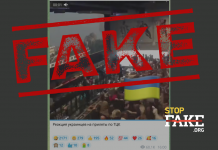Edward Snowden gave Franc Inter an exclusive interview which was entirely broadcasted on Monday 17th September 2019, but its excerpts were published earlier.
The former CIA and NSA contractor who is wanted in the US for revealing top secret governmental documents since 2013 has been an asylum seeker in Russia. In the interview he said, however, that he would gladly accept the asylum in France if president Macron granted it to him. It does not change the fact that Snowden stated that “the only place an American whistleblower has the chance to be heard is not in Europe but here [in Russia]”. Snowden had applied for the asylum in many countries, including to French president at the time François Hollande in 2013. Without success. He added that “it’s not only Franc that is in question, it’s the Western world, it’s the system we live in. Protecting whistleblowers is not a hostile act. Accepting someone like me is not an attack on the US.”
The topic of Snowden’s interview has been willingly undertaken by Russian press agency TASS. Besides France Inter’s interview, an exclusive video interview for The Guardian has been ultimately published. In that one Snowden says that Russia is one of the most beautiful countries of the world and Russians love peace. He also pointed that “a country whose political troubles are legendary, whose problems with human rights we hear about every single day has finally, somehow, managed to have one bright spot on their human rights record”, speaking, obviously, about himself. The reason for granting asylum seems to be, however, a bit different. It has been somehow confirmed by Snowden himself – he said that Russian special services have offered him collaboration more than once. As a proof of not accepting such requests, he points out that in such case he “would live in a palace”. A day before TASS quoted Snowden on the fact that he would gladly return to the US – this topic returns in the interview for France Inter in which the former CIA agent said also that he would rather live in Europe than in Russia.
As the condition of his returning to the US, Snowden named “a fair trial” in his case. He would like to be able to defend himself by asserting his actions were in the public interest. This figure is not possible according to the US law. He is charged for espionage. For every charge, because of a critical violation of security and national interest he can face up to 10 years (in the US the prison sentences sum up).
The series of interviews is related to the publication on 17th September Snowden’s new book “Permanent Record”. The Justice Department filed a lawsuit to obtain any gains from the book. The argument for it is that Snowden included information he obtained and published “in violation of his alleged contractual and fiduciary obligations.”
Intelligence information should protect our nation, not provide personal profit,” G. Zachary Terwilliger, the U.S. attorney said. “This lawsuit will ensure that Edward Snowden receives no monetary benefits from breaching the trust placed in him.” Snowden on Twitter noticed the lawsuit, with a link to buy the book and the phrase: “This is the book the government does not want you to read.” The Justice Department underlined that the lawsuit is not meant to prevent or limit the distribution of the book of the former CIA agent.
WM
Sources: TASS, TASS, The Guardian, France Inter, The Washington Post
Fot. Laura Poitras / Praxis Films





